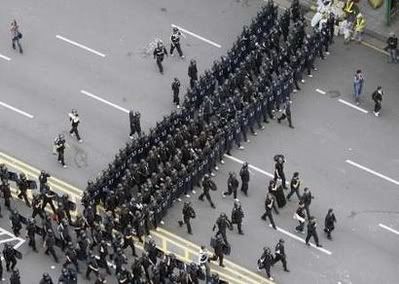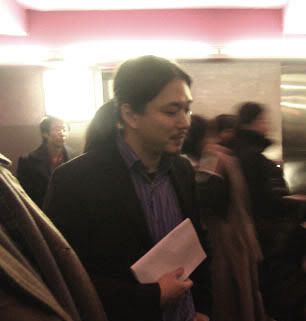
“But beyond the very legitimate concerns about the quality of American beef, I think there is also something more going on here, at least for the university students.
I get the sense that young people are bored, bored with pop culture, bored with plastic surgery, bored with consumerism and the fetishization of luxury goods.
They are also angry that they have spent their entire lives studying, only to leave university and enter a jobless future. Korea was convulsed by political revolution in the 1980s, but never really went through an equivalent cultural revolution.The protests are about mad cow disease today, but social movements have a way of accumulating new meanings and directions over time. Who could have predicted that opening the Korean market to U.S. beef would have sparked such massive protests. And who knows where this thing will end up. That’s the exciting thing about history.”
John Eperjesi (Kyung Hee University), “Candlelight Vigils, Food Sovereignty for Healthier Future”
Full article
“This situation would not be so confusing if the diplomats, journalists and other foreign residents who know Korea did their jobs properly. But either they don’t understand the dynamic themselves or out of love for Koreans they moderate their language. Thus the foreign press, for example, refers to “anger against resumed beef imports,” rather than public hysteria, which is what it really is. Believe me. As a European, I know hysteria when I see it. We murdered 200,000 people as witches in the 15th century and 6 million Jews, and large numbers of Gypsies and homosexuals, in the 20th, for reasons that we don’t know.”
Mike Breen, “Mad Cow Hysteria”
Full article




